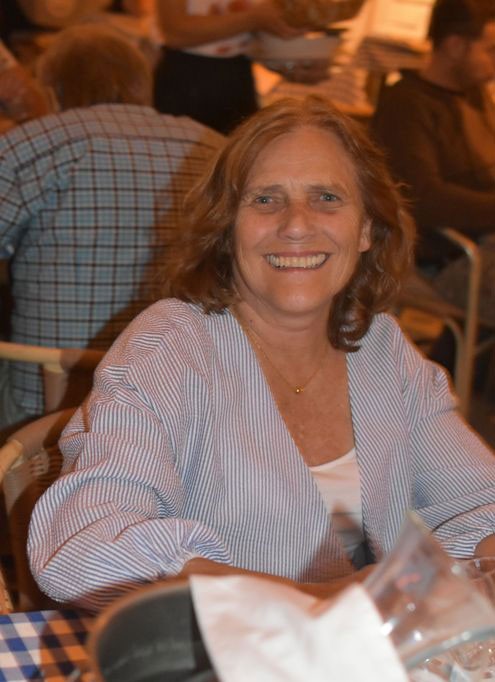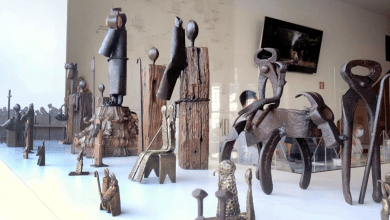Cristina Cosme wins Agustina Bessa-Luís Revelation Award
An original novel, written without haste at a mature age, earned Cristina Maria de Moura Cosme to be chosen as the winner of the 12th edition of the Agustina Bessa-Luís Revelation Award.
With the title “A Living Symbol”, it was consensual for the Jury that it is “a novel that articulates, with ease the game of prudence and cunning of human relations.”
In the minutes of the Jury, it is observed that the novel takes Lisbon as a “scenario through which the imagination circulates personal and loving relationships. The City and its places draw a geography of affective pathways, and sometimes dreams and fantasies of the protagonist, Silvana, a lonely woman in search of herself.
For Cristina Cosme, already awarded in other literary journeys, with tale and poetry, painting is another of her passions – “took care of me, divided me. It required my attention endless hours of day and night. It was my other inspiration. ”A retired high school teacher with a degree in Germanic philology, Cristina Cosme attended the Society of Fine Arts and the Ricardo Espírito Santo Foundation, with time to open an art gallery, finding in painting“ for many years , my way of finding an aesthetic consistent with my conception of life ”.
Despite the painting to be absorbed, with exhibitions at home and abroad, Cristina Cosme did not move away from writing that “never ceased to be at the center of my aspirations from an early age, was always part of me, was intrinsic to me, was always there and I have never seen it as a form of ascension or veiling. ”
“Being a novelist,” she confesses, “was a distant and unlikely step. To take this step was to consider whether other eyes would gladly see what I could produce for some reflective or aesthetic effect. ”
By withdrawing from teaching, opting for reform, Cristina Cosme felt that “the time had come to write with another conviction, and it became a serious case. The literary production of great novelists, essayists and philosophers has left me along my path revealing marks of superior talents and these are my references, highlighting, among many, Yourcenar or Kafka, Saramago or Eça ”.
Modestly, he acknowledges that “I wrote a book. Notwithstanding the 1st. experience is fallible, essence escapes us, merges with uselessness and we have to reevaluate, but I saw with redoubled pleasure that writing is pure art, a challenge to the creative act and the very intelligence, the aesthetics of the word, the signifier and meaning in conjunction in such a way as to reflect and delight. And I wrote this one.
About the novel “A Living Symbol”, the author tells that she was inspired after the 25th of April, facing “a generation marked by an austere and paternalistic education”, who is impelled “to manage the obscurantism of the past with a new world and the new freedom offered ”.
For Cristina Cosme the winning work “is not a linear novel, there are several dramatic, drastic, tragic and adverse spaces, spaces of mental disturbance, lucidity and reflection, situational and referential contexts, scenarios of various themes whose unity constitutes the demand of the highest yearnings ”.
“All formal and conceptual elements – he says – contribute to the same end, so that this search finds answers. At the same time, there is ambiguity brought on by an irony that is not unveiled, a game of hypothesis and mystery that, being real, transposes the real. A closed game that the reader has to open and interpret in his own way. ” He concludes: “All reflections on human existence are hypotheses, there are no certainties in the romance world, it is up to the reader to make them their certainties or not.”
The jury that awarded the Prize, in addition to Guilherme D`Oliveira Martins, who chaired, representing the CNC – National Center of Culture, integrated José Manuel Mendes, by the Portuguese Writers Association; Maria Carlos Gil Loureiro, by the Directorate General of Books and Libraries; Manuel Frias Martins, by the Portuguese Association of Literary Critics; and also Maria Alzira Seixo, José Carlos de Vasconcelos and Liberto Cruz, individually invited and Dinis de Abreu, representing Estoril Sol.
It is recalled that the Revelation Prize Regulations, which no longer set an age limit for competitors in 2016, nevertheless maintained the requirement to be Portuguese authors, “without any work published in the genre”. From the first moment, the initiative counts on the support of Editorial Gradiva, which ensures the editing of the winning work, through a Protocol with Estoril Sol.






